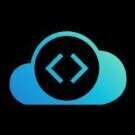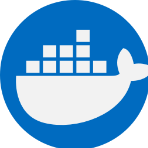Search the Community
Showing results for tags 'events'.
-
untilAWS re:Invent is the world's largest, most comprehensive cloud computing event. This year, for the first time ever, re:Invent is available as a free 3-week virtual event. Full Details & Registration
-
untilDevOpsDays London is proud to be part of the global DevOpsDays community. Over 15 years and through global crises we have built a lasting network of technical conferences organised by the community, for the community. Our 2024 event will occur over two days with a single track of speakers in the morning, followed by Ignite talks (5 minutes, auto forwarding slides every 20 seconds). The afternoons are then given up to Open Spaces which are what makes DevOpsDays events truly special. Open spaces are what allow us to come together as a community and discuss the pressing issues we face. From technical deep dives to driving cultural change, no topic is off the cards, what is important is that the conference decides what it wants to talk about. For attendees and sponsors we offer a unique chance to engage on a significantly more personal level than the larger corporate conferences. With practitioners from across the spectrum on their DevOps journeys we have space to learn from one another in open conversation, building relationships and a community that can help drive forward change together. We would love for you to join us in September whether it is your first ever time at DevOpsDays or if you have been attending since Ghent in 2009, we have Early Bird tickets are available right now at discounted prices. We are committed to making our conference as accessible as possible and offer professional childcare at the event alongside live sign interpreters and pronoun badges, the conference venue is also wheelchair accessible. If you have any specific requirements or questions please feel free to reach out to the organising team. Whilst COVID-19 may no longer be in the headlines, we take the health of our attendees and organisers seriously. If you have purchased a ticket but are feeling unwell on the day of the event please stay home for everyone's safety. All talks at the event are live streamed and you can contact us at info@devopsdays.london for a full refund. https://dev.events/conferences/devopsdays-london-london-8-2024
-
untilhttps://dev.events/conferences/sr-eday-2024-london-jh-p-yb-af0
-
untilhttps://dev.events/conferences/integrate-2024-united-kingdom-6-2024
-
Apple is "unlikely" to hold an event to announce new iPad Pro and iPad Air models, according to sources cited by Taiwanese supply chain publication DigiTimes. Bloomberg's Mark Gurman already said Apple was not planning to hold an event for the new iPads, but he made this claim back in early March, before it was reported that the devices were postponed due to manufacturing delays. With the new iPads now expected to launch in early May, DigiTimes believes Apple is still not planning to hold an event. Instead of an event, it is likely that Apple will announce the new iPads in a press release shared on its website, as it did for the MacBook Air models with the M3 chip in early March. Gurman believes Apple will announce the new iPads by the second week of May, barring any further delays due to production challenges. Gurman said two factors contributing to the new iPads being delayed were Apple still finishing iPadOS software development for the new iPads, and advanced manufacturing techniques for the OLED displays that the devices will use. A recap of the iPad-related products that Apple is expected to announce: Two new iPad Pro models with the M3 chip, OLED displays, a thinner enclosure, thinner bezels, a matte screen option, a landscape-oriented front camera, other design changes, and possibly MagSafe wireless charging. Two new iPad Air models with the M2 chip and a landscape-oriented front camera, including a first-ever 12.9-inch iPad Air. A new Magic Keyboard for the iPad Pro with an aluminum enclosure, larger trackpad, and other design tweaks. A new Apple Pencil, which may have a new "squeeze" gesture for certain actions and support visionOS eventually.It has been nearly 18 months since Apple last released new iPads, so customers have been waiting a long time for updated models to launch. 2023 was the first year in which Apple did not release any new iPads in the device's history.Related Roundups: iPad Air , iPad ProTag: DigiTimesBuyer's Guide: iPad Air (Don't Buy), 11" iPad Pro (Don't Buy), 12.9" iPad Pro (Don't Buy)Related Forum: iPad This article, "Apple Event for New iPads Still Considered 'Unlikely' Following Delays" first appeared on MacRumors.com Discuss this article in our forums View the full article
-
- apple
- apple events
-
(and 2 more)
Tagged with:
-
untilhttps://grafana.com/about/events/grafanacon/2024/
-
- grafana
- conferences
-
(and 2 more)
Tagged with:
-
Cequence Security is thrilled to announce our participation at this year’s RSA Conference, Booth 2033, where we’ll showcase our innovative bot management and API security solutions. The RSA Conference, a global summit for security innovators, returns to San Francisco’s Moscone Center from May 6-9. This event is a melting pot for those looking to exchange […] The post Join Cequence Security at RSA Conference 2024: Protect What Connects You with Advanced API Security Solutions appeared first on Cequence Security. The post Join Cequence Security at RSA Conference 2024: Protect What Connects You with Advanced API Security Solutions appeared first on Security Boulevard. View the full article
-
- conferences
- events
-
(and 1 more)
Tagged with:
-
Join Ekran System at the RSA Conference, one of the world’s leading cybersecurity events. It’s where top professionals share their expertise to equip cybersecurity teams with the tools, intelligence, and connections needed to protect their organizations against evolving threats. The conference will take place at the Moscone Center, San Francisco, from May 6 to 9, […] The post Meet Ekran System at the Leading Cybersecurity Event of 2024 appeared first on Security Boulevard. View the full article
-
In the dynamic and often complex environment of Kubernetes, observing and understanding the state of your cluster is essential. If you can't examine the condition of your running applications, effectively managing them becomes a challenge, if not impossible. This is where the concept of observability comes into play, and Kubernetes Events play a pivotal role in this context. In this blog post, you'll learn what Kubernetes Events are and how to collect them. Let’s get started! What are Kubernetes Events?Kubernetes Events are resources that provide insights and visibility into the operational aspects of the cluster, such as why certain actions were taken or why they failed, serving as a useful tool for understanding the state and behavior of Kubernetes resources. Kubernetes Events are generated whenever there's a change in the state of cluster resources such as Nodes, Pods, Containers, and other Kubernetes objects like Deployments, Services, etc. It’s important to note that Kubernetes Events are temporary in nature and, by default, are not stored permanently. Instead, they are kept in "etcd", the Kubernetes key-value data store, and are retained for a short period (typically one hour). This helps in managing the storage and performance impact on the "etcd" database. Types of Kubernetes EventsKubernetes Events can broadly be categorized into two types: Normal Events: These events signify expected and routine operations in the cluster, like a Pod being scheduled or an image being successfully pulled.Warning Events: Warning events indicate issues that users need to address. These might include failed Pod scheduling, errors pulling an image, or problems with resource limits.How to Collect Kubernetes EventsIn Kubernetes, there are two primary commands for collecting event data: kubectl describe and kubectl get events. kubectl describeThe kubectl describe <RESOURCE> command provides detailed information about a specified resource, including a section titled Events at the end. Below is an example of the Events section from the output of a kubectl describe <POD_NAME> command for a running nginx Pod: While the kubectl describe command provides a detailed overview of a specific resource, including recent events, its event data can be somewhat limited. It does not offer options for deeper analysis. This is where the kubectl get events command, designed specifically for handling event data, comes into the picture. kubectl get eventsThis command displays all events related to all objects in the current namespace. Below is a screenshot showing the output of the kubectl get events command for a running nginx Pod: As you can see, the event feed provides several key pieces of information: LAST SEEN: Timestamp of when the event was last observed.TYPE: Indicates if the event is Normal or a Warning.REASON: A short string that describes the event.OBJECT: The Kubernetes object (like a Pod or Deployment) associated with the event.MESSAGE: A description of the event.With kubectl get events, you can use additional flags to focus on exactly what you need. Next, we'll look at how to use these flags to better organize and understand your Kubernetes Events. Filtering and Sorting Kubernetes EventsWhen working with Kubernetes Events, the volume of data can be overwhelming, especially in large clusters. Efficiently filtering and sorting these events is key to extracting meaningful insights. Here are some practical tips to help you manage this: Get a detailed view of eventskubectl get events -o wide Add the -o wide flag to get a comprehensive view of each event, including additional details not visible in the standard output. List events in a specific namespacekubectl get events --namespace=<NAMESPACE_NAME> Replace <NAMESPACE_NAME> with the actual namespace. This command filters events to show only those occurring in a specified namespace. List events across all namespaceskubectl get events -A Add the -A flag to see events from all namespaces. Stream live eventskubectl get events -w Add the -w command to stream events in real-time. This is particularly useful for monitoring ongoing activities or troubleshooting live issues, as it updates continuously as new events occur. Use Ctrl+C to terminate the stream. Use field selectors for precise filteringkubectl get events --field-selector type=<EVENT_TYPE> Add the --field-selector flag to filter events based on specific field values. Replace <EVENT_TYPE> with the event type you want to filter by. For example, kubectl get events --field-selector type=Warning will only show events of type Warning. This is particularly useful for isolating events related to errors or critical issues. Sort events by timestampkubectl get events --sort-by='.metadata.creationTimestamp' Add the –sort-by flag to sort events chronologically. This is useful for tracking the sequence of events and understanding their progression over time. Use JSON or YAML output for complex querieskubectl get events -o json kubectl get events -o yaml For complex filtering that can't be achieved with kubectl flags, you can output the events in a structured format like JSON or YAML by adding the -o json and -o yaml flags, respectively. You can then use tools like jq (for JSON) to perform advanced queries and analyses. Tools For Exporting Kubernetes EventsAs we've previously discussed, Kubernetes Events are inherently temporary, stored for only a short duration in the "etcd" database. This poses a challenge when it comes to long-term monitoring and analysis. To address this, several external tools have been developed, enabling the export of Kubernetes Events to more persistent destinations for extended analysis and integration with monitoring systems. Below, we explore some common tools that are widely used for exporting and monitoring Kubernetes Events: Eventrouter: Eventrouter is a tool that watches Kubernetes Events and forwards them to a specified destination, such as a logging platform. This helps in persisting Events beyond their default short lifespan, allowing for extended analysis and historical monitoring of the cluster's activities.kubernetes-event-exporter: This tool allows for the export of Kubernetes Events to multiple destinations with customizable routing and filtering. It's especially useful for transforming events into a more consumable format for various monitoring and alerting systems. kspan: It’s a tool that converts Kubernetes Events into elements called "spans", which helps in tracing the sequence and connection between different events in your Kubernetes cluster. This makes it much simpler to see how events are related and to understand the overall flow and impact of what's happening in the cluster. kubewatch: It monitors Kubernetes Events and notifies users of changes. It's well-suited for real-time alerting and integrates with various messaging platforms, keeping users informed about the operational state of the cluster. Each of these tools comes with its own unique set of features and capabilities, making them suitable for different needs and scenarios. Choose the tool that aligns best with your specific requirements and goals. ConclusionIn this blog post, we learnt what Kubernetes Events are, including their various types. We explored how to collect event data using two key commands: kubectl describe and kubectl get events, and discussed the use of different flags with kubectl get events for enhanced filtering and sorting. Lastly, we touched on several popular tools used to export Kubernetes events, allowing for persistent storage and long-term analysis and reporting. Unlock the Power of Kubernetes Today! Dive into the world of hands-on learning with a FREE KodeKloud account. Interested in learning more about Kubernetes? Check out the following courses from KodeKloud: Kubernetes for the Absolute Beginner.Certified Kubernetes Administrator (CKA)Certified Kubernetes Application Developer (CKAD)View the full article
-
untilhttps://platformcon.com/
-
- platformcon
- conferences
-
(and 1 more)
Tagged with:
-
For the last three years, DockerCon, our annual global developer event, was 100% virtual. Still, we were humbled by the interest and response — tens of thousands of developer participants from around the world each year. Wow! (If you missed any of ’em, they’re available on YouTube: 2020, 2021, 2022!) With our collective global return to the “new normal,” DockerCon 2023 will be hybrid — both live (in Los Angeles, California) and virtual. Our desire is to once again experience the live magic of the hallway track, the serendipitous developer-to-developer sharing of tips and tricks, and the celebration of our community’s accomplishments … all while looking forward together toward a really exciting future. And for members of our community who can’t attend in person, we hope you’ll join us virtually! In the spirit of keeping this post brief, I’ll share a few community highlights here, but expect much more news and updates next week at DockerCon! Our open source projects — containerd, Compose, BuildKit, moby/moby, and others — continue to scale in terms of contributions, contributors, and stars. Thank you! And overall, our developer community is now at 20M monthly active IPs, 16M registered developers, 15M Docker Hub repos, and 16B image pulls per month from Docker Hub. Again, we’re humbled by this continued growth, engagement, and enthusiasm of our developer community. And in terms of looking forward to what’s next … well, you gotta tune-in to DockerCon to find out! But, seriously, there’s never been a better time to be a developer. To wit, with the digitization of All The Things, there’s a need for more than 750 million apps in the next couple of years. That means there’s a need for more developers and more creativity and innovation. And at DockerCon you’ll hear how our community plans to help developers capitalize on this opportunity. Specifically, and without revealing too much here: We see a chance to bring the power of the cloud to accelerate the developer’s “inner loop,” before the git commit and CI. Furthermore, we see an untapped opportunity to apply GenAI to optimize the non-code gen aspects of the application. By some accounts, this encompasses 85% or more of the overall app. Piqued your interest? Hope so! Looking forward to seeing you at DockerCon! sj Learn more Register for DockerCon. Register for DockerCon workshops. Watch past DockerCon videos: 2020, 2021, 2022. Get the latest release of Docker Desktop. Vote on what’s next! Check out our public roadmap. Have questions? The Docker community is here to help. New to Docker? Get started. View the full article
-
2020 Global SKILup Festival Agenda is Live, New Activities and Speakers Added Hosted by DevOps Institute, the free virtual festival celebrates the Humans of DevOps throughout a week of activities that focuses on social, professional and educational experiences BOCA RATON, Fla. – November 11, 2020 – DevOps Institute, a global member-based association for advancing the human […] The post appeared first on DevOps.com. View the full article
-
Out of more than 100 services that Amazon Web Services (AWS) provides, Amazon CloudWatch was one of the earliest services provided by AWS. CloudWatch was announced on May 17th, 2009, and it was the 7th service released after S3, SQS, SimpleDB, EBS, EC2, and EMR. View the full article
- 1 reply
-
- aws
- cloudwatch
-
(and 6 more)
Tagged with:
-
The next Sony State of Play event has yet to be announced, but could be a long ways off given that we just got one recently. Since the series began in 2019, Sony has used State of Play to reveal The Last of Us 2 release date, debut gameplay footage for Ghost of Tsushima, and more. So, it's always worth tuning in to the State of Play live streams if you want to be alerted to any big announcements for new PS5 games. The last State of Play aired on September 14, 2023, and saw the release date revealed for Final Fantasy 7 Rebirth. In addition, we got new trailers for Marvel's Spider-Man 2, and Helldivers 2. Here's when to expect the next Sony State of Play event. When is the next Sony State of Play? (Image credit: Shutterstock / Girts Ragelis) The next Sony State of Play event has yet to be revealed. It's likely that we'll get one to kick off 2024, but we'll have to wait and see. What can we expect from the next Sony State of Play? Sony has yet to reveal the next Sony State of Play event. Given that the next big PS5 game is Final Fantasy 7 Rebirth, it's likely that the next event will dive deep on the upcoming RPG. Aside from that, there's a lot of multiplayer titles like Marathon on their way. For now, it's a bit up in the air as to what will be shown next. What was revealed at the last Sony State of Play? The last State of Play was on September 14, 2023 and it gave us a brand new look at Final Fantasy 7 Rebirth. In addition, new content was shown off for Foamstars, Helldivers 2, and Resident Evil 4's Separate Ways DLC. You can head to the PS Blog for a full round up of what was shown off. Missed the action live? We've embedded the showcase video above so you can catch up on everything you missed. That's when to expect the next Sony State of Play event. For more on PlayStation, here's a list of upcoming PS5 games set to release in 2024 and beyond. For PlayStation games specifically, visit our new PS5 games list. View the full article
-
- playstation
- events
-
(and 1 more)
Tagged with:
-
Forum Statistics
42.3k
Total Topics42.1k
Total Posts
.png.6dd3056f38e93712a18d153891e8e0fc.png.1dbd1e5f05de09e66333e631e3342b83.png.933f4dc78ef5a5d2971934bd41ead8a1.png)







